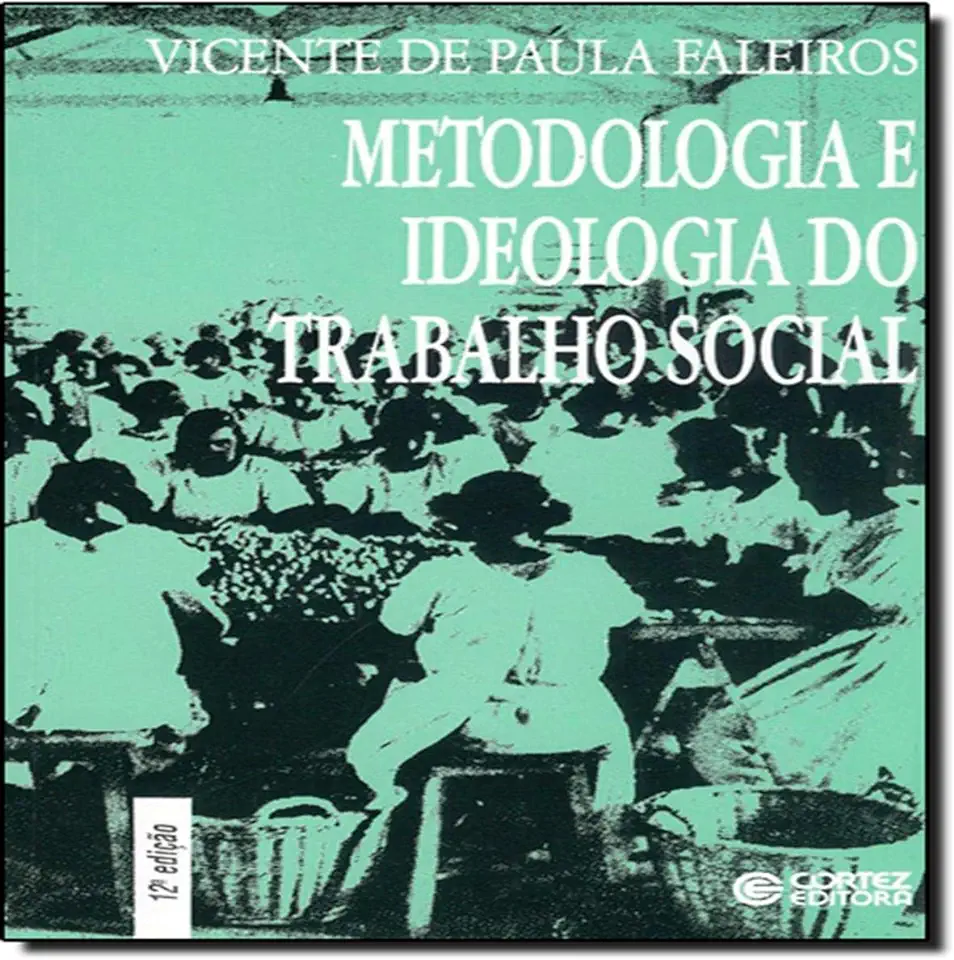
Social Work Methodology and Ideology - Vicente de Paula Faleiros
Social Work Methodology and Ideology: A Comprehensive Guide to Understanding and Applying Social Work Principles
Introduction
In the ever-changing landscape of social work, it is essential for practitioners to have a solid understanding of the methodologies and ideologies that underpin their practice. Vicente de Paula Faleiros' groundbreaking book, "Social Work Methodology and Ideology," provides a comprehensive exploration of these key concepts, offering readers a deeper understanding of the theoretical foundations of social work and how they can be applied in real-world scenarios.
Understanding Social Work Methodology
Faleiros begins by introducing the concept of social work methodology, defining it as "the systematic and organized approach to social work practice that guides practitioners in their work with individuals, families, groups, and communities." He then delves into the various methodological frameworks that social workers can employ, including:
The problem-solving approach: This approach focuses on identifying and addressing specific problems faced by clients, using a structured process of assessment, intervention, and evaluation.
The strengths-based approach: This approach emphasizes building on clients' strengths and resources to help them overcome challenges and achieve their goals.
The empowerment approach: This approach seeks to empower clients by helping them develop the skills and knowledge they need to take control of their own lives and make positive changes.
Faleiros provides a detailed analysis of each approach, discussing its strengths and limitations and offering practical guidance on how to apply it effectively in different settings.
Exploring Social Work Ideology
In the second part of the book, Faleiros turns his attention to social work ideology, which he defines as "the system of beliefs and values that guides social work practice." He explores the various ideological perspectives that have shaped the profession, including:
The liberal perspective: This perspective emphasizes the importance of individual rights and freedoms, and advocates for social policies that promote equality and opportunity for all.
The conservative perspective: This perspective emphasizes the importance of traditional values and social order, and advocates for social policies that preserve the status quo.
The radical perspective: This perspective emphasizes the need for fundamental social change, and advocates for social policies that challenge existing power structures and promote social justice.
Faleiros provides a balanced and objective analysis of each perspective, exploring its strengths and limitations and discussing its implications for social work practice.
Applying Methodology and Ideology in Practice
In the final part of the book, Faleiros brings together the concepts of methodology and ideology, demonstrating how they can be applied in practice to address a variety of social problems. He presents case studies from his own experience as a social worker, illustrating how he used different methodological approaches and ideological perspectives to help his clients achieve positive outcomes.
Conclusion
"Social Work Methodology and Ideology" is a must-read for social work practitioners, educators, and students. Faleiros' comprehensive and insightful analysis of these key concepts provides a solid foundation for understanding and applying social work principles in a variety of settings. With its wealth of practical examples and thought-provoking insights, this book is an invaluable resource for anyone committed to making a positive impact on the lives of others.